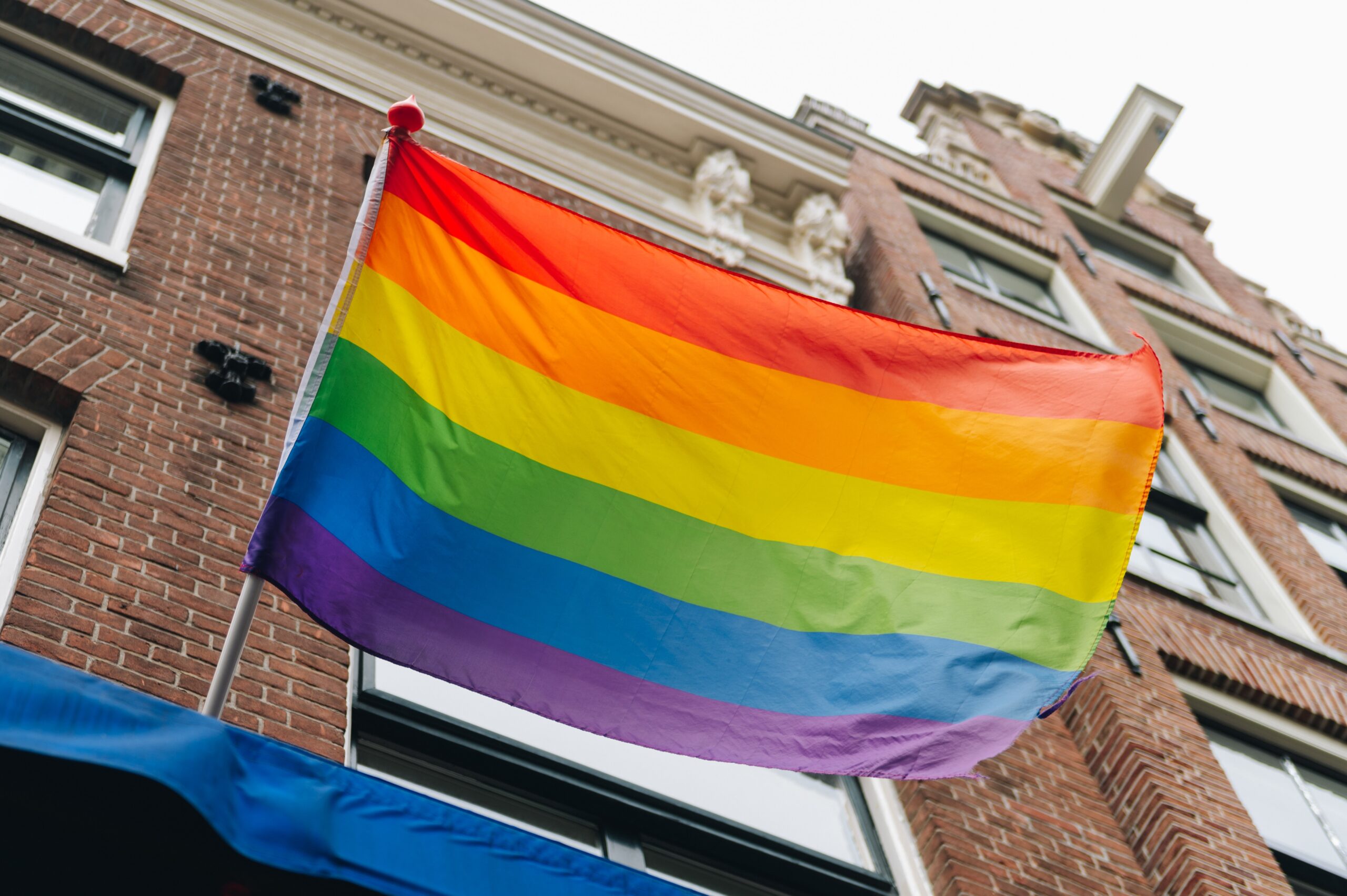The most significant Christian dogmas are rooted in the Gospels—the Good News about Jesus’s birth, public ministry, death, resurrection and ascension. But there are also more peripheral doctrines, ones that allow for nuanced interpretation according to cultural contexts and vernacular dialects.
Exegesis is not as simple as fitting Scripture into categories: white or black, truth or untruth, literal or metaphorical. Rather, there’s an allowance for mystery—a grayness that can transform into a rainbow of colors.
Thus, the various camps of Christianity, from conservative to moderate to progressive, can often approach important issues in different ways. In her book Heavy Burdens: Seven Ways LGBTQ Christians Experience Harm in the Church, Bridget Eileen Rivera discussed how modern-day Christians, both Catholics and Protestants, permit varying theological interpretations on issues that would have been historically contested–including baptism, the Eucharist, divorce, slavery, segregation and women serving in positions of leadership.
Some Christians, however, have turned peripheral doctrines into dogmas. Skye Jethani, a theologian, author and podcaster, noted how fundamental Christians prioritize what he terms “crotch Christianity.” Paraphrased, it promotes an anti-gay, anti-abortion and anti-promiscuity worldview. At its core, “crotch Christianity” lifts up heteronormativity and Purity Culture.
In this article, I’m going to focus on anti-gay sentiments, because I have experienced it firsthand as someone who identifies as both Christian and queer. My intent isn’t to have a theological debate or proselytize my affirming theology that supports LGBTQ relationships.
Every day, I feared being fired for my sexuality.
Rather, as someone who has been immersed in conservative theology for over a decade while working at Evangelical and Catholic high schools, I simply want to briefly highlight my experience—and that of LGBTQ students. My hope is that readers will have more empathy for those in the queer community who have lived or are living within conservative contexts.
At the Catholic school where I worked, employee contracts vaguely stated that individuals would “adhere to Catholic values.” At presumably all religious schools, there are employees who violate this expectation by gossiping about co-workers or students, blatantly denying the existence of God, overindulging in substances like alcohol or making racist, sexist and homophobic comments.
Employees who engage in such behavior may still be employed and no one bats an eye. The reality is that we all have “sawdust” in our eyes and hearts, and rather than own it and change, most of us hypocritically point out the “planks” in the eyes of others (Mt. 7:3-5). For a person who identifies as queer, it feels like fundamentalists like to brutally insert giant sequoias into their eyes.
In the name of “love,” members of my conservative community have told me that I am going to burn in hell or reap eternal damnation for being in a romantic relationship with a woman. Every day, I feared being fired for my sexuality. While my co-workers were able to tell stories about their weekend adventures, I always had to vaguely say, “I spent time with ‘my friend.'”
A coworker with whom I shared an office adamantly stated that “fa—” is not derogatory and that simply listening to the perspective of a member of the “LGB-whatever” community is pushing the “gay agenda.” It’s an awful feeling when others make me feel like I have no worth or dignity because I’m different from the majority culture.
Speaking of difference, here’s an excerpt from one of my students, who identifies as non-binary:
Most people don’t have to worry about feeling different. They naturally fit in. Maybe I would too if I wasn’t who I am. I wake up in the morning, and I have to try to figure out who I am that day. Not as a choice. Usually, I can tell who I am by how I react to saying pronouns and what I choose to wear.
But often, I have no clue and end up disliking what I wear. Then there’s the dysmorphia constantly felt during the day. Wishing I had her body and figure, wishing I could be muscular and bulky like him, or a mix of nothing and both. I try to avoid mirrors, not because I hate how I look, but because this isn’t me. And when I do something to try and be me, I’m pushed away and people shun me.
The comments I hear in class aren’t helpful either. I hear kids joking [about] “identifying as an attack helicopter” and making fun of me. These things just push me further into fear and hiding myself from others. This makes it especially hard, because I don’t know if they would like me when they figure out who I am.
So, I avoid it at all costs and don’t act on my feelings. These are only a few things I go through daily. Some days are better, and some days are worse. But I have a small group of friends who help me a lot. Most kids aren’t as fortunate as I am and go through this alone. Please don’t make people feel shunned or alone.
What are the possible fruits of fearing, hiding and shunning?
It’s an awful feeling when others make me feel like I have no worth or dignity because I’m different from the majority culture.
According to a recent CDC survey, the statistics are disheartening for the LGBQ+ high schoolers. (The data will not extend to transgender students until the next report, in two years.) Please remember that each number represents a real-life person.
- Nearly 70 percent of these students experienced persistent feelings of sadness/hopelessness
- 45 percent considered attempting suicide, while 37 percent made a suicide plan and 22 percent attempted suicide
- 23 percent reported bullying at school, while 27 percent reported electronic bullying.
At his Baptism, Jesus was commissioned with the identity of the “beloved”—to be loved (Mt. 3:17). Bearing the Imago Dei (“the image of God”), every person’s core identity is also that of the beloved. Out of this identity, Jesus commanded us to love God, others and ourselves (Lk. 10:27). No matter which theological camp you find yourself in, I plead with you to show God’s love to LGBTQ persons.



